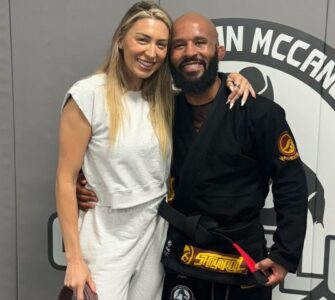Preparation is the key to success in any endeavor, and Brazilian Jiu-Jitsu competition is no exception. With its intricate techniques and strategic maneuvers, BJJ demands a meticulous approach to training and conditioning. A full-time British Army Elite Sports BJJ Athlete provides valuable insights into his comprehensive six-week plan to prepare for BJJ competitions.
He offers a detailed glimpse into the athlete’s training regimen, highlighting essential aspects of physical conditioning, technical skill development, and mental preparation.
- Setting Clear Goals: “First thing I like to do is set out my goals for the competition. Whether that’s to win, whether that’s to hit a specific technique, or just to perform well.”
- Goal setting serves as the foundation for the entire training plan. Whether aiming for victory, mastering a particular technique, or simply performing at one’s best, establishing clear and achievable goals provides focus and direction throughout the six-week period.
- Balancing Physical Conditioning and Technique: “I like to focus on conditioning in the earlier weeks and then transition more into technique and tactical preparation closer to the competition.”
- A balanced approach to training is essential for success in BJJ competition. Beginning with a focus on physical conditioning helps build strength, endurance, and explosiveness, while shifting towards technical refinement and tactical preparation ensures a well-rounded skill set and strategic readiness.
- Structured Training Schedule: “I’ll typically train six days a week, with a mix of strength and conditioning sessions, technical drilling, sparring, and recovery.”
- A structured and consistent training schedule is paramount for optimal progress and performance. Incorporating a variety of training modalities, including strength and conditioning, technical drilling, live sparring, and adequate recovery sessions, ensures a comprehensive and effective training regimen.
- Gradual Intensity Build-up: “I like to gradually increase the intensity and volume of my training as the competition approaches, ensuring that I peak at the right time.”
- Strategic periodization of training intensity is crucial for avoiding burnout and maximizing performance on competition day. By gradually ramping up the intensity and volume of training sessions, athletes can peak at the optimal moment, primed for peak physical and mental performance.
- Mental Preparation and Visualization: “In the weeks leading up to the competition, I’ll also focus on mental preparation, visualization, and positive self-talk to build confidence and mental resilience.”
- Mental preparation is as vital as physical conditioning in BJJ competition. Utilizing techniques such as visualization, positive self-talk, and mental rehearsal helps athletes cultivate confidence, focus, and resilience, essential for overcoming challenges and performing under pressure.
- Strategic Rest and Recovery: “Rest and recovery are just as important as training, so I’ll make sure to incorporate rest days and prioritize sleep and nutrition throughout the six-week plan.”
- Proper rest and recovery are integral components of any training plan. Incorporating scheduled rest days, prioritizing adequate sleep, and maintaining a balanced and nutritious diet support physical recovery, reduce the risk of injury, and optimize overall performance.
He offers invaluable insights into crafting a winning strategy through a structured six-week training plan for BJJ competition. By setting clear goals, balancing physical conditioning and technique, adhering to a structured training schedule, gradually increasing training intensity, focusing on mental preparation, visualization, and prioritizing rest and recovery, athletes can embark on a journey of preparation and readiness, poised for success on the BJJ mats.


















